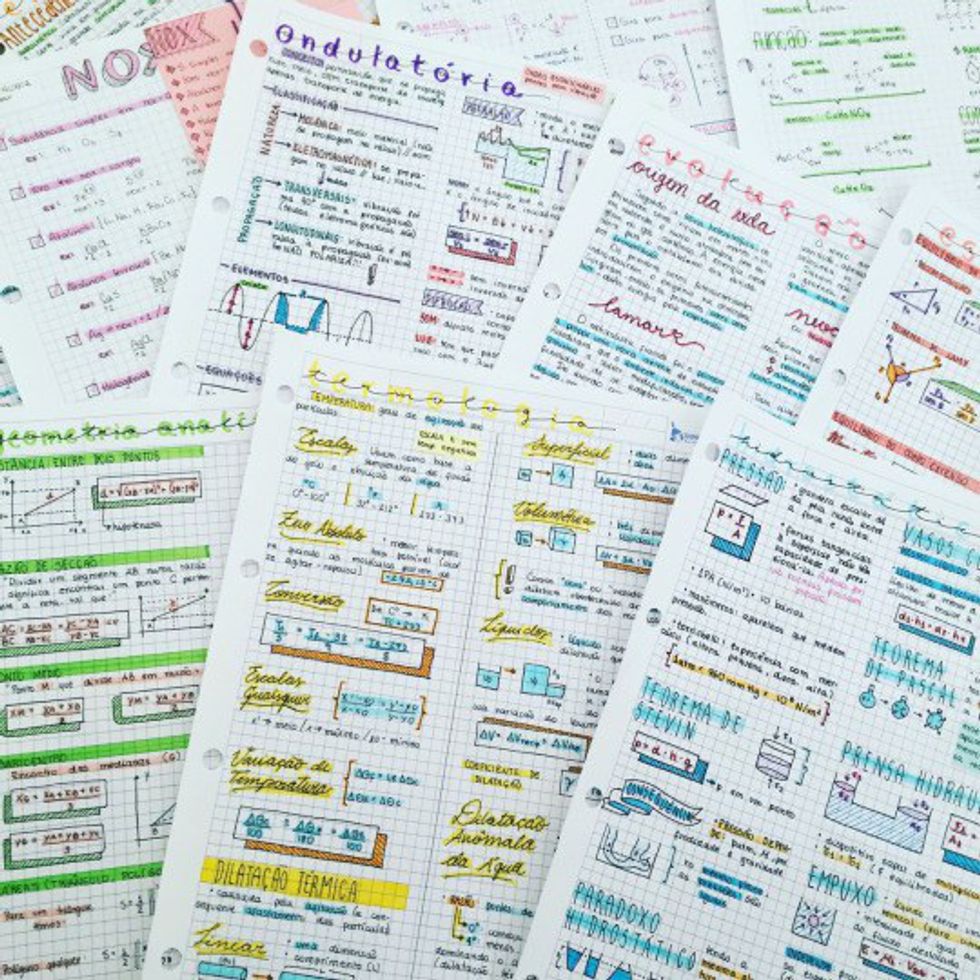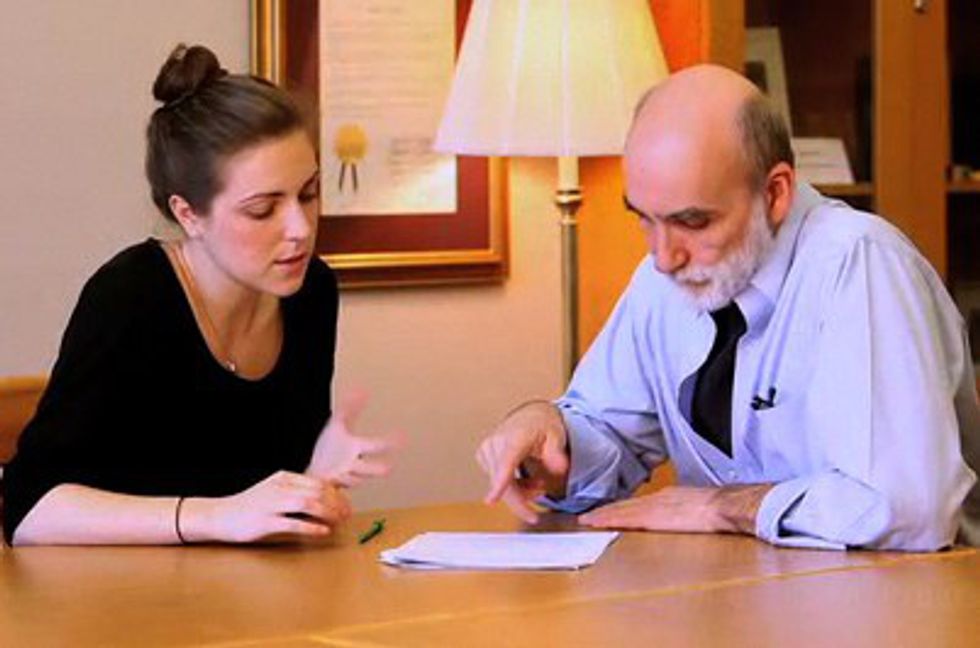You're trying to ace five back-to-back exams, finish a paper, and retain your sanity all within the next week. Here are some tips to help minimize your stress this week. Happy studying!
1. Reward yourself
The most effective way to study, I have found, is to set goals and reward yourself when you have accomplished them. For instance, after completing a study guide, take a break and bake cookies. Maybe after your first final you reward yourself and grab coffee with a friend before diving into your next studying excursion. Maybe its as simple as having a piece of chocolate after you complete one chapter of notes while abstaining from snacking while studying. Regardless, giving yourself something to look forward to is always a great push to get some work done.
2. Do NOT study with friends until you have a good understanding of all of the information
Studying with friends is always a dangerous trap, but studying with friends when you have not yet mastered the information well enough yourself is even worse. If you do not understand the information well enough to keep a consistent, productive conversation going bout the subject, chances are the study session will get off topic much quicker than if you two could actually discuss relevant material. You know how it goes, you guys are both confused, both check your phones, and the next thing you know you're discussing someone's Facebook status instead. Make sure studying with friends are REVIEWS where you can productively quiz one another or actually discuss the one or two things that did not make sense to you, after having put in your own time studying.
3. All-nighters are not effective
Your body NEEDS sleep. While the recommended eight hours may leave you feeling way too guilty to actually achieve during exam week, make sure you are still getting several hours of good rest. It is so much harder to do well on an exam when your days and nights start running together and you can't even remember the material you reviewed just before. Go over all the material once right before going to bed and be confident in your knowledge. Also, make sure to set several alarms and ask your roommate or a friend to make sure you wake up in time to study (or to make it to your exam on time!!)
4. Create study materials you WANT to look at

5. Lists, lists, lists
The satisfaction of being able to cross tasks off a list is great motivation to get things done. Create a list of things you want to accomplish for each exam that day; make sure you are at least touching upon all your exams each day and don't leave one untouched until the end because you have been focusing on other classes. The lists can consist of small tasks like looking up what chapters the exam covers, as well as bigger tasks like creating a study guide. Keeping this in your agenda will help you keep track of what you accomplished each day and where you should be headed (and allows you to move things back a day if you don't get everything done very easily)!
6. Take advantage of the resources you are given
Do not forget that teachers and TA's are getting paid to help you and they want to do so (in most cases). Office hours and emails are going to be your best friends the next few weeks. Also, don't forget the Internet is a wonderful tool you can take advantage of as well. There are so many pre-made study guides, quizzes, etc. that you can look to for guidance and to use as review materials.
7. Take it day by day
Focus on today and worry about tomorrow's plan tomorrow. It is very easy to become completely overwhelmed this time of year if you keep looking at everything you have to do within the next two or so weeks. Focus on today and try and touch upon each subject at least briefly. Most people have their exams pretty close together and studying for your exam solely the night before will not yield the grades you're looking for. Focus your attention mainly on the first upcoming exam, but don't leave studying for your last exam until right after your second to last exam. Spend a little time each day on it.
8. Preparation now means less pressure later
A lot of classes have open note exams, notecard exams, or "cheat sheet" exams. While it is easy to put off studying for these exams because you get to bring your own material to the exam, it is equally important to spend time on these classes. Having a sheet of paper with notes and formulas is only effective if you know where to look for these formulas and notes. In most cases, these classes have shortened test times or longer actual exams, so you do not have the time to be looking around for where to find the answers. Spend time color coding, creating notes, indexes, etc. to best find the information you need during the test. Putting in this time and preparation now will be a great benefit to you during the test and only takes an hour or so.
9. Create a studying playlist
Spotify has some great concentration playlists that have songs with no lyrics that can really help you stay focused. The music you listen to while driving or with friends probably isn't what is going to keep you most focused on studying. Find or create a playlist of music that focuses you and listen to it. Many tests have proven Classical music is a good choice to listen to while trying to memorize/study. Remember, you shouldn't be focused on enjoying the music but rather on studying, so it doesn't have to necessarily be anything you'd listen to in your free time.
10. Use your time most effectively
Many professors are no longer allowing laptops in class because they have been proven to be less effective in note-taking/learning than tradition handwritten notes. Writing out your PowerPoints, textbook outline, and even rewriting your in-class notes are all things that can be done in a timely fashion and can help. Do not spend countless hours reading the textbooks: you may be putting in a lot of time but it is surely not the most productive. Focus on what you were told will be on the exam and what was emphasized in class.
Just remember you're almost done and will be happily home within two weeks. Good luck!

























